
The Big Idea
From idea to outline. For a story readers will love.







For a story worth writing
Most writers don’t struggle with writing. They struggle with knowing what to write.
Coming up with the idea for a book can be a head-scratching challenge. The Big Idea answers that.
It walks you, step by step, through the power moves behind the books you love—from The Great Gatsby to The Godfather, from The White Tiger to The Secret History, from Normal People to Life of Pi. You’ll see exactly how famous authors found their ideas and built them into stories that moved readers everywhere. By the end, you’ll have a polished outline with a powerful plot. You’ll find your voice. And you’ll leave with the book you were meant to write—a story readers will love.
Build a bestseller
In this course, you’ll uncover the storytelling secrets behind the world’s most beloved and bestselling novels. Drawing on the craft of Donna Tartt, Meg Mason, Aravind Adiga, Brian Moore, F. Scott Fitzgerald, J.R.R. Tolkien, C.S. Lewis, J.M. Barrie, Yann Martel, Patricia Highsmith, Mario Puzo, Colm Tóibín, Stephen King, Ernest Hemingway, Sally Rooney, and more, you’ll see how the masters of fiction build unforgettable characters, structure gripping narrative arcs, and strike the balance between emotional depth and page-turning drive. We’ll take an insider’s look under the bonnet of Pulitzer and Booker Prize-winning novels to consider how to bring the best storytelling techniques to secure your place at the sweet spot where acclaim meets bestseller status.


Your standout story
Why The Big Idea course is the perfect fit for you
Which are yours?
Find your voice, find the story
With The Big Idea, you’ll discover what your novel is truly about and how to build it with purpose. You’ll learn how strong stories work, why bestsellers grip readers, and how to use those principles in your own outline. You’ll refine your authentic voice, sharpen your instincts, and gain the confidence that comes from knowing your story stands on solid ground.
Most importantly, you’ll unlock the excitement of creating a book that feels fully yours from the very first spark.
Say hello to a new chapter of your writing life
When you sign up for The Big Idea, you get far more than a foundation course. You gain a global and supportive community of like-minded writers, editors, publishing professionals, and cheerleaders.
In fact, we’re the largest online writing community exclusively for novelists.
Here at The Novelry, you’ll find everything (and everyone) you need to write better, and write happy—from workshops, networking opportunities, and annual party get-togethers, to feedback sessions and safe spaces for sharing the ins, outs, ups, and downs of the novelist’s journey.
Write with passion, and readers will feel it on the page
Writing for pleasure is a fine thing. Writing a story that captivates readers needs a little planning. Here’s a secret: bestsellers don’t happen by accident. The story is well considered from the start. In fact, it all begins with a powerful pitch.
In The Big Idea, you’ll learn what makes a story irresistible from the very beginning. You’ll uncover the principles behind the books people can’t put down, and you’ll use them to shape an idea with real momentum and clarity—before you start writing your chapters.
You’ll discover what keeps readers turning pages, what gives a story emotional pull, and how to build those elements into your outline from day one.
This saves you time, strengthens your confidence, and helps you begin your novel with passion and purpose.
You don’t just want to write without ever getting published. You want to write a bestseller.
Not all writing classes are created equal
A great course will go beyond standard textbook guidance. It’ll help you make strong progress, quickly. A great writing course will:
- Teach the storytelling principles and practical tools you won’t have encountered yet.
- Be taught by bestselling authors and world-class editors who know how books succeed.
- Give you a step-by-step path from idea to outline that actually holds together.
- Welcome you to a global and supportive writing community.
- Help you understand what makes stories work across the fiction genres.
- Put you on a firm footing for drafting with confidence and a lifetime of writing to publishing standards.
- Be taught by bestselling authors and world-class editors who know how books succeed.
With a great writing course, you get the answers you need, the structure you’ve been missing, and the support that helps you stay the course.
On your terms. At your pace.
You’re not looking for any old course. You want actionable tasks to build a book.
Find your voice, find the story
With The Big Idea, you’ll discover what your novel is truly about and how to build it with purpose. You’ll learn how strong stories work, why bestsellers grip readers, and how to use those principles in your own outline. You’ll refine your authentic voice, sharpen your instincts, and gain the confidence that comes from knowing your story stands on solid ground.
Most importantly, you’ll unlock the excitement of creating a book that feels fully yours from the very first spark.
Say hello to a new chapter of your writing life
When you sign up for The Big Idea, you get far more than a foundation course. You gain a global and supportive community of like-minded writers, editors, publishing professionals, and cheerleaders.
In fact, we’re the largest online writing community exclusively for novelists.
Here at The Novelry, you’ll find everything (and everyone) you need to write better, and write happy—from workshops, networking opportunities, and annual party get-togethers, to feedback sessions and safe spaces for sharing the ins, outs, ups, and downs of the novelist’s journey.
Write with passion, and readers will feel it on the page
Writing for pleasure is a fine thing. Writing a story that captivates readers needs a little planning. Here’s a secret: bestsellers don’t happen by accident. The story is well considered from the start. In fact, it all begins with a powerful pitch.
In The Big Idea, you’ll learn what makes a story irresistible from the very beginning. You’ll uncover the principles behind the books people can’t put down, and you’ll use them to shape an idea with real momentum and clarity—before you start writing your chapters.
You’ll discover what keeps readers turning pages, what gives a story emotional pull, and how to build those elements into your outline from day one.
This saves you time, strengthens your confidence, and helps you begin your novel with passion and purpose.
You don’t just want to write without ever getting published. You want to write a bestseller.
Not all writing classes are created equal
A great course will go beyond standard textbook guidance. It’ll help you make strong progress, quickly. A great writing course will:
- Teach the storytelling principles and practical tools you won’t have encountered yet.
- Be taught by bestselling authors and world-class editors who know how books succeed.
- Give you a step-by-step path from idea to outline that actually holds together.
- Welcome you to a global and supportive writing community.
- Help you understand what makes stories work across the fiction genres.
- Put you on a firm footing for drafting with confidence and a lifetime of writing to publishing standards.
- Be taught by bestselling authors and world-class editors who know how books succeed.
With a great writing course, you get the answers you need, the structure you’ve been missing, and the support that helps you stay the course.
On your terms. At your pace.
You’re not looking for any old course. You want actionable tasks to build a book.
.avif)
.avif)
.avif)
.avif)
.avif)
.avif)
.avif)


‘The Novelry—from the twinkling of an idea through to a publishing-ready novel.’

‘Recommended by leading literary agencies.’

‘All aboard a different kind of writing school.’

‘A remarkable world-wide writing school (...) with classes run by tutors including brilliant authors and former editors from Penguin Random House.’
From the first spark of an idea to the joy of seeing your story take shape, the road to publishing begins with smart planning. Whatever your writing goals look like for you, The Big Idea will give you the creative advantage to set your novel on the strongest path. It’s the springboard to a page-turner.
Imagine having an award-winning, bestselling author vet your storyline before you start writing.
Your class includes a coaching session with a published, bestselling, or award-winning author of your choice. All our authors are experts in their genre. They will be able to advise you on how to make sure your story is the strongest it can be for today’s publishing market.
Discover the secrets of storytelling from the all-time bestsellers and modern classics
Generate story ideas and test them through the tasks of the course
Follow and complete the steps to build your outline step by step
Deliver a fully fleshed-out plan for your plot
Schedule a session with an author coach to develop the best version of your storyline
The Big Idea Course
Bring the big moves of storytelling to your storyline for a fiction novel readers will love.
The Secrets of Storytelling
🪄 Lesson 1: You, the Writer
Storytelling is your birthright, a cunning art that can reverse inequalities, unsettle the natural order, and work magic even where none exists. Stories rely on credibility in the voice and bait in the promise, and both must work together. You should write first for yourself, choosing an idea that satisfies your own needs. Story and voice are inextricably linked. Find a natural voice and leave bad writing habits behind. Begin with a task to hear your own voice, capture it, and use it from here on out, starting your writing like a real writer from today.
🔍 Lesson 2: Find Your Story
Story is the answer to almost every writing problem, and this lesson shows you how a strong premise grows from simple ingredients arranged with structure, taste, experience, and outlook. You will be shown the sources of great ideas and stay open to humble beginnings, personal meaning, dreams, music, and the books you love, all of which point you toward the kind of story only you can write. The task will help you study the patterns of the stories personally meaningful to you, to enable you to mix the elements to begin shaping the building blocks of your own idea.
🎯 Lesson 3: Make It Mission Impossible
A great story begins with a problem at the edge of plausibility, a dilemma or quest no ordinary person could survive. This lesson shows you why starting with the impossible gives your novel power, ambition, and momentum. You learn how realism disguises artifice, how detail keeps the reader convinced, and how a bold premise lets you outwit doubt and stay committed. The task will introduce you to a natty way of producing the silver bullets your story will need to fire, in less than five words per idea.
📚 Lesson 4: The Elements of a Bestselling Classic
Discover the big moves of the all-time great stories so you can spot the ingredients that give fiction its lasting power. You will learn why writers steal, recycle, and remix ideas, how comps guide the industry, and how classic tales rely on extreme situations, magic, or misdirection, and an immersive “walk in my shoes” experience. Discover why readers want familiarity with a twist, why small stories endure, and how fairy tales and folk tales act as potent story starters. In the task, you will produce five more ideas using these prime movers.
🩹 Lesson 5: The Wound
Powerful stories grow from flaws, failures, rejection, and old hurts to find the authentic and highly individual material that gives a story its universal force. You will see how childhood losses, transformations, and hidden selves shape voice, theme, and character, and how honesty—not performance—keeps the work alive. Explore how authors rewrite what they couldn’t fix in life by giving the problem to someone else in fiction and tap the most unique source for your idea, to create a story with genuine human stakes.
💘 Lesson 6: Write What You Need
Your sense of justice shapes the narrative arc of a story. Your values drive every choice, from crime to romance to comedy. The expert author has the skill to work with their own nature to reveal crucial aspects of the players they need. Explore unrealized possibilities within yourself, learn how desire and conflict form the spine of a story. In the task, you will get a good grasp of the art form of the novel as the moral journey of one individual and use the arc of their character development to deliver a satisfying outcome.
⭐️ Lesson 7: The Main Squeeze
You will explore how stories hinge on the one person who experiences change and grows. Understand how main character, hero, and narrator are three roles you can assign for your different purposes. Discover how to build sympathy without making them “you,” in order to choose someone capable of transformation. Load them with flaws, danger, and desire to begin plot development. Find out how physical detail, predicament, and personality shape the reader’s attachment. In the task, you will gather candidates for your main character, sketch their traits, and test who has the strongest problem to drive your story forward.
🛡️ Lesson 8: The Hero
A hero is shaped by resistance, tested by circumstance, and revealed through their curiosity, decency, and sometimes a flaw that marks them as chosen. You will explore how ordinary people become heroic when pressed by injustice, how kindness earns allegiance, and how a cosmic flaw can be the sign of grace that drives the story. Discover how stories align the reader with the rebel who resists. In the task, you will map the tests, trials, and setbacks that could forge a hero worthy of your story.
🏡 Lesson 9: The Friendly & Familiar
Familiar people, places, and objects give your story its grounding, even when the plot sends your main character into danger, magic, or mystery. You will see how a benevolent presence—a guide, sidekick, or moral anchor—keeps the reader safe, and how chosen objects act as emotional tokens that signal home, history, and values to steady the reader before you lead them into the unknown. In the task, you will identify the friendly forces and familiar tokens that will reassure your reader and keep your story world worth fighting for.
👹 Lesson 10: The Villain
Every story needs a worthy enemy—both the outer antagonist who blocks the hero and the inner foe the hero must face down to grow. You will explore why villains are charismatic, why they mirror the hero, and how their certainty, charm, and self-regard sharpen the story’s moral stakes. Understand how the villain embodies the shadow side of your theme, defending the status quo while the hero pushes for change, and why the story only ignites when these forces collide. In the task, you will cast a convincing villain and shape the dance with the devil that drives a great plot.
⚖️ Lesson 11: Justice
Discover the hidden universal code of stories—a secret code of fairness—which quietly shapes the choices, consequences, and final balance of the best-loved tales. Learn how even the wildest plots obey a simple principle: something wrong must be set right. Understand how decency, retribution, restitution, and moral growth underpin the great stories. In the task, you will sketch how each of your budding story ideas might be developed to rebalance the scales and deliver justice.
🌿 Lesson 12: The Garden of a Story
Explore the garden as the world of your story—a place that is transformational. You will see how great writers use setting not as wallpaper but for the purpose of revelation: a landscape that exposes desires, fears, illusions, and the deeper truths for the main character. You will discover how your choice of place can act as sanctuary, or tighten the screws. Understand why setting is a state of mind, not a surveyor’s map. In the task, you will make your first sketch of the setting for your best idea in play so that you, as the author, can begin to spend time there in your mind as you develop the strongest idea so far.
🔥 Lesson 13: Toward Conflict
Explore how temptation, bribes, and taboos push a story by shaking a character’s moral balance. You will see how a hero is tested not only by hardship but by desire, distraction, and the quick fixes that expose their flaw. Learn why characters must lose control before they gain it, why injunctions spark plot, and how conflict arises when two value systems collide. You will learn that the battle—short, sharp, decisive—reveals what your main character truly stands for. In the task, you will define the value-based clash that drives your story toward the all-important drama of conflict.
✨ Lesson 14: The Treasure
The true prize of a story—the thing your character thinks they want is not as valuable as the deeper revelation they (and the reader) actually gain. Learn how withholding the treasure keeps pages turning, how great stories create endings that never truly end, and how the finest tales offer a form of resurrection: hope, renewal, continuity beyond time. In the task, you’ll define your character’s concrete desire, draft the message-in-a-bottle that reflects the story’s deeper wisdom, and chart the trials and gifts that frame the journey from suffering to reward to produce the spine of a plot.
🧭 Lesson 15: The Story So Far
You will gather everything you’ve created so far and test it for strength and staying power. You’ll stretch the ideas that still excite you, try which voice feels right for each, and compose the story elements that belong together. We will ensure your chosen idea suits your natural storytelling instincts, aligns with the books you love, and carries the big moves that make a story worth writing. You will shake down your ideas against a clear set of criteria to select the strongest contender and firm up the elements you need before we start outlining.
Outlining Your Story
🧩 Lesson 16: Story Structure
You will begin shaping the strongest of your ideas using the classic five-part structure that underpins long-form fiction. You’ll see how writers across genres use a clear sequence to organize plot, deepen character, and guide the reader toward a meaningful ending. You will discover how this structure sharpens your thinking, reveals gaps in your idea, and helps you test whether your story has the fuel it needs for The Big Write. In the task, you will map your idea against each point of our unique method—The Five Fs®, only at The Novelry—to see how your emerging story can take shape on the page.
🧿 Lesson 17: The Big Question
Every great novel—whether it’s driven by mystery, desire, or identity—sets one clear pursuit in motion from the outset, then keeps it alive through reveal, concealment, repetition, and rising stakes. You will discover how the question shapes your story’s pitch, your opening, and the reader’s hunger for more, and how even literary novels work hard to keep that question front and center. In the task, you will write your core question then raise its urgency by testing the stakes, adding obstacles, and framing it in the simplest, strongest form possible.
🎛️ Lesson 18: The Treatment
You will explore how the treatment of your story—the narrative perspective and sense of time—shapes the story itself. You will learn why first person draws us into an individual’s condition while third person reveals the wider social view, and how the choice determines the kind of justice your story delivers. You’ll discover how timeframe influences tension, how a ticking clock sharpens change, and how perspective affects connection, theme, and pace. In the task, you choose the viewpoint that serves the theme of your strongest idea, and test timeframes to heighten drama.
🎭 Lesson 19: The Theme
Let’s pin down the engine that sits beneath your story. Learn why a theme must stay hidden, why it must be humble rather than grandiose, and explore how the genre, casting, and structural essentials like the midpoint reveal the truth your story will be circling from page one. In the task, you will sketch possible themes, note what your main character gets wrong at the start, and identify the midpoint moment when the truth will surface—your best test of whether this idea deserves a book.
💫 Lesson 20: Starting to Plot
Begin shaping the chain of cause and effect that will carry your story from its opening hook to its resolution. You’ll discover how theme and character work together to generate plot. Explore your character’s before and after, and identify which antagonist embodies the opposing end of the value set of your theme. In the task, you will map the conflict across The Five Fs, create early plot beats using desire, denial, and resistance, and sketch the first passes of your story’s journey—your first true blueprint for the story ahead.
🧑🤝🧑 Lesson 21: The Cast
You will explore how your characters line up on the rope of your theme, each pulling in a different direction to create tension, friction, and movement. You’ll discover how the Four Types give you a clean, reliable way to balance your core cast, and why a Type A anchor, a Type B hothead, a Type C charmer, and a Type D villain create the necessary push and pull to keep a story alive. You’ll see how their company, circumstances, and contradictions reveal who they are without heavy description. In the task, you will position each cast member along your theme, decide who is pulling your main character off-course or keeping them steady, and begin a private list of minor characters borrowed from real life to bring truth and texture to your world.
👤 Lesson 22: Feeling for Your Main Character
Explore how to earn the reader’s care from the first page by grounding them in essentials like where we are, who we are, and what’s happening before anything dramatic occurs. Simple, steady opening passages create emotional voltage, revealing a character through tokens, habits, and the way others react to them. Develop craft skills to avoid over-exposition and overwriting for good! In the task, you will draft a clean opening snapshot, clarify what your main character wants and why, choose the form of agency that drives them, test whether they truly have the most at stake, and build a private list of artifacts to bring them convincingly to the page.
🔀 Lesson 23: The Midpoint
Refine your storyline when you define the pivotal moment that turns your story on its axis and forces your main character to change. You’ll discover why the midpoint is the point of no return, how it kills false hope, exposes the flaw, and breaks the old coping strategy so thoroughly that your character can no longer dodge, deny, or delude themselves. You’ll see how this moment reveals the theme, strips away the cover story, and triggers the transition from BEFORE to AFTER—where the fightback begins. In the task, you will identify the event that changes everything, test how your character suffers the consequences of earlier errors, and nail the reversal: flaw exposed, want disproved, and the first glimpse of what they truly need.
👥 Lesson 24: The B Story
A secondary storyline strengthens the theme and sharpens the main character’s journey. The B Story shows the far end of your theme—an alternative life, a dangerous promise, or a tempting delusion—and it must come into conflict with the A Story to expose what your main character needs. You’ll see how the B Story accelerates the crisis, reveals the risks of the opposite value system, and prepares your character to stand on their own two feet once both ends of the rope are dropped. In the task, you will generate possible B Stories tied to your theme and identify which one collides most powerfully with your main storyline.
🧑🦱 Lesson 25: The Second Character
The second character stands at the opposite end of your theme, shaping conflict, contrast, and growth. You’ll discover why this character is never a duplicate of your main character, why they often hold the qualities your hero lacks, and how their presence creates light and shade across the storyline. You’ll examine how this figure can function as sidekick, nemesis, antihero, or love interest, and how they ultimately lose something in the exchange while your main character gains what they need from them, or the rejection of them. In the task, you will design a second character who contrasts with your hero to give your main character the lessons they cannot learn alone.
🌍 Lesson 26: The Wider Cast
Now we are ready to widen the cast. You’ll revisit the four personality types, explore archetypes for inspiration, and learn where to find your minor characters. Supporting characters, even in small doses, generate energy, conflict, humor, and contrast. Understand how to use the subconscious emotional “messaging” of even the most minor character to bring the story to life. The lesson closes with the “20 Vital Signs”—a lightning-fast biography exercise that immediately brings your principal players into focus and generates natural plot ideas as you write. It all adds up to a richer world, sharper dynamics, and a cast ready to cause exactly the amount of trouble your story needs.
✍️ Lesson 27: Writing the First Outline
You will be ready to shape a working synopsis. You will gather the fundamentals: where we find your main character, what they want, why the reader cares, and how the agent of change tips their life off its axis. You will sketch the early beats of pursuit, failure, pressure, and the turning point that destroys their old strategies. You will also confirm theme, genre, setting, treatment, and the forces that stand against your hero. In the task, you will draft a one-page outline that captures each major beat in one clear sentence. This helps you test the mechanics of drama and ensures you begin with a story strong enough to grow.
📚 Lesson 28: Testing the Opening Chapter
Test your treatment on the page with simple, unfussy writing that serves the story. Develop craft skills to deliver an opening that is steady and confident, and learn how to use ordinary detail to create atmosphere. Apply visual “framing” to slow the scene to show what matters. Explore the tools of a working writer’s toolbox, common to every keyboard, to guide the reader’s attention. In the task, you will sketch a rough first chapter outline, try famous chapter structures for sandboxing, and draft an opening to test how your story behaves on the page.
🙌 Lesson 29: Please Yourself
Learn what it means to write for yourself first, choose the company you want to keep on the page, and trust the routine that makes writing possible. Understand how reading unlocks ease, how early beginnings stay loose until the ending is known, and why play, doubt, and curiosity are part of the work. Use a practical set-up that protects your process—your folders, rolling documents, notes, problems page, and small daily checks on theme, treatment, and character. In the task, you will organize your writing life and consider the signals—pleasure, discomfort, instinct—that help you choose the version of your story you most want to write.
🫶 Lesson 30: The Last Piece
Enjoy time with your main character and enter their inner life. Learn how to keep the story warm when you’re not writing, how to track the real source of the drama—the problem, the want, the flaw—and how to see issues clearly by returning to the outline. Discover why cutting creates space, why you rule the process, and be rewarded for your work with the key that opens the door to the story.
“Whatever you can do, or dream you can, begin it. Boldness has genius, power, and magic in it.”
‘I’m diving into my next novel feeling more prepared than ever before’
‘The Novelry not only gave me the crucial accountability I needed to get going, it also helped me to tackle structure, plot and theme, and realize what kind of writer I am. All of these things gave me a huge boost of renewed confidence, allowing me to dive into my next novel feeling more prepared than I ever have done before. I’m feeling hopeful that maybe, just maybe, I could be on to a winner.’
Journalist and author of Five Steps to Happy.

Why The Big Idea Course?
Progress at your own pace
30 lessons. Take your time!
Stay a little longer
Life. It happens to the best of us.
Money-back policy
Our Happy Writing guarantee.
Access to one-on-one coaching from bestselling authors
The brightest lights are at The Novelry.
60+ workshops a month
In addition to your course.
Story First Method™
Understand whether your story has commercial value and is fit to excite publishers and agents.
Genre expertise
What’s your style?
Video masterclasses
From the likes of Kristin Hannah and Yann Martel.
A supportive writing community
Find your people.
More 5-star reviews
Than any other writing course. The Novelry is the world’s top-rated fiction writing school.
A clear path to publishing
Yours if you want it. Fine if you don’t. We will help you reach pro standards.
Created by a Booker Prize-listed author
We don’t just talk the talk.
Ready for your most ambitious fiction adventure yet?
The Big Idea








- Membership (1 Year)
- The Big Idea Course
- A Coaching Session
- A Year’s Access
From creating your story then writing a polished draft, to publishing your bestselling book. Our courses support you across the whole journey.
Which course
FAQs
If you’re bursting with questions we haven’t answered here, check out our full FAQs page or feel free to get in touch.
A notebook, a pen, and a computer with a decent internet connection for use of our online learning platform and coaching sessions.
Our online learning platform is easy to use, even for the less tech-savvy among us. We are supportive and responsive to our writers, available by email and at our online members’ community around the clock, worldwide, so that you can relax and enjoy your writing.
We’ll guide you on how to choose a coach within the first lessons, before you book your first coaching session. Once you’ve scoped your story and clarified the genre you’re working in, it’s usually very clear which coach will be the best fit — all of our coaches are successfully published authors working within specific genres.
At The Novelry, you choose your coach. We’re also happy to advise once we’ve seen your storyline and understand what kind of guidance will best serve your book.
You’re free to work with different coaches as your project develops — whether to gain specialist craft input, a fresh perspective, or expertise at a particular stage. Behind the scenes, our coaching and editorial teams work closely together, keeping careful records and sharing insight, so your story is always supported as a whole. Whoever you meet with, they’ll come briefed and prepared.
You’re never locked into a single pairing. This is a professional, collaborative process designed to give your book the very best expertise at every stage.
Our courses are suitable for people with visual or auditory impairment, dyslexia, and for those with English as a second language. We offer an app which translates the course into 99 languages and a speak-aloud option too.
‘Thanks to the expert guidance of The Novelry, my manuscript has received interest from a number of agents and was longlisted for an award this year.’


.avif)
.avif)
.avif)
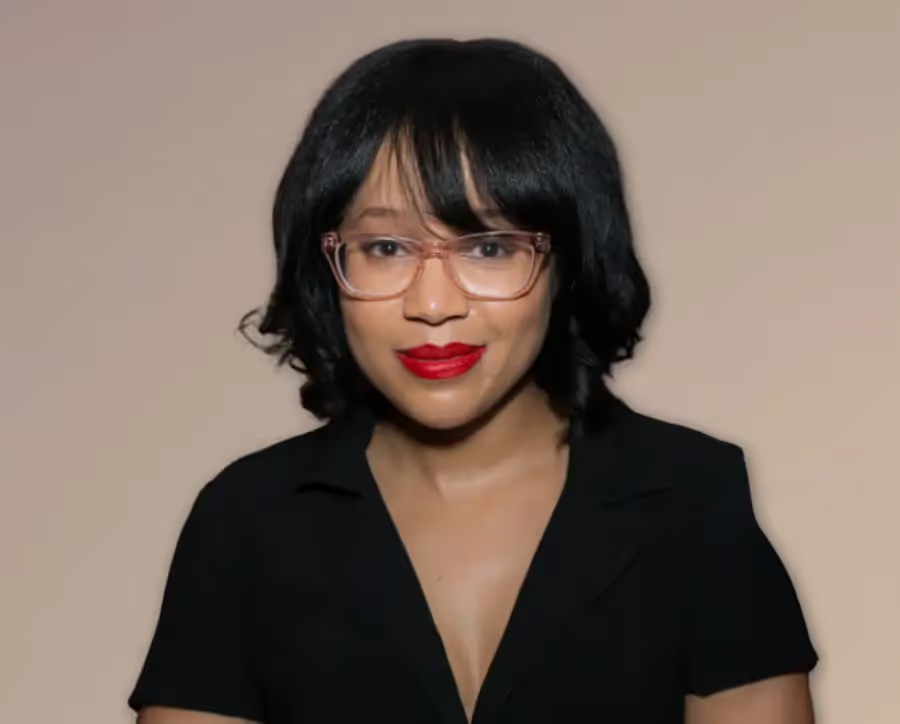
.avif)

.avif)
.avif)

.avif)

.avif)
.avif)
.avif)
.avif)

.avif)

.avif)

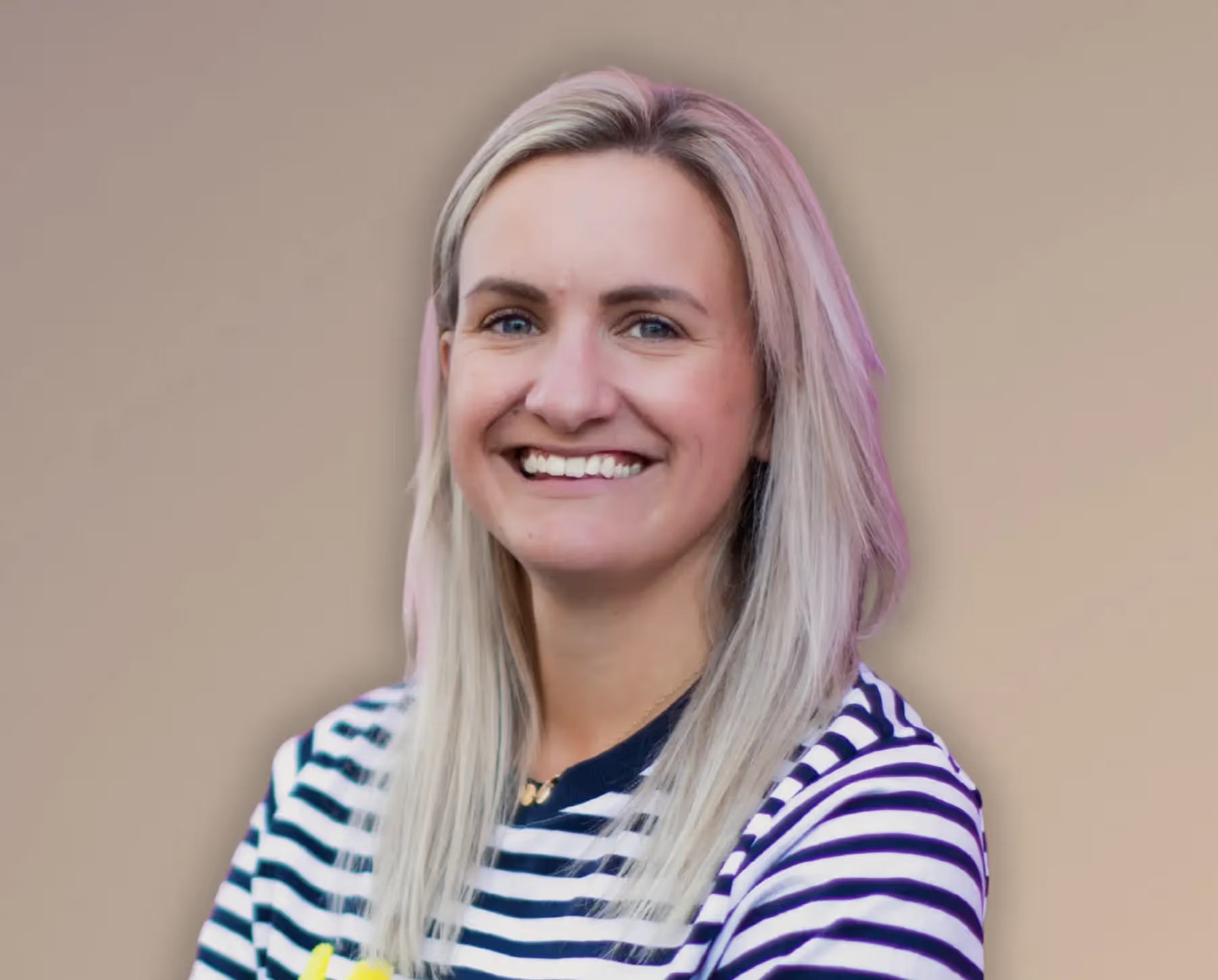
.avif)



.avif)
.avif)
.avif)


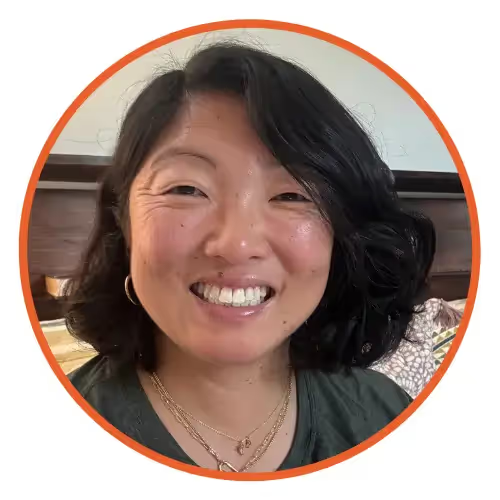
.avif)
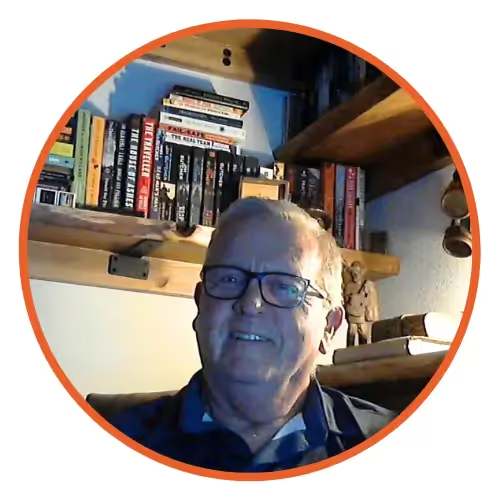

.avif)
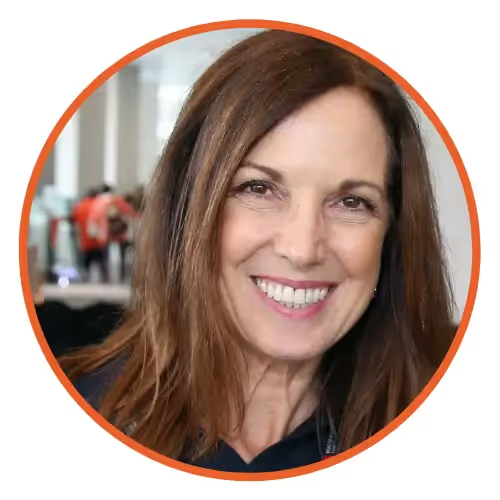
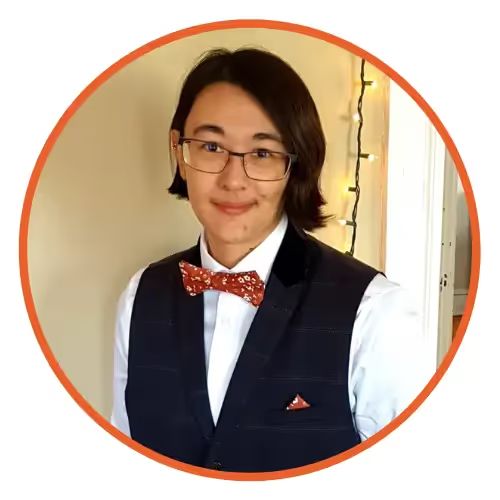
.avif)
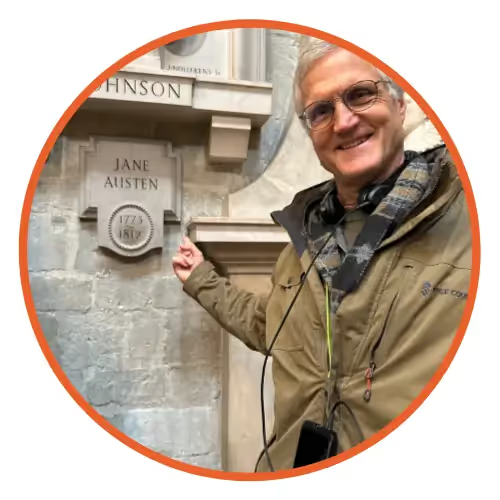
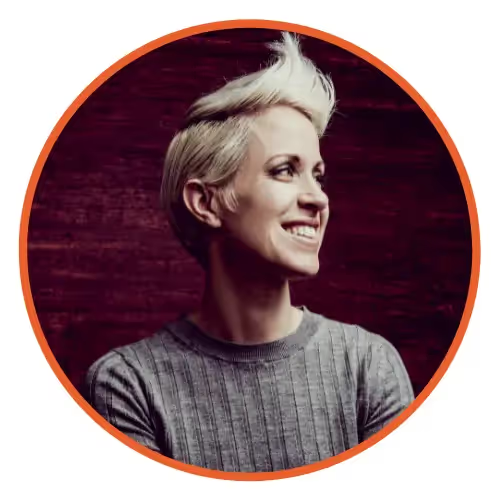
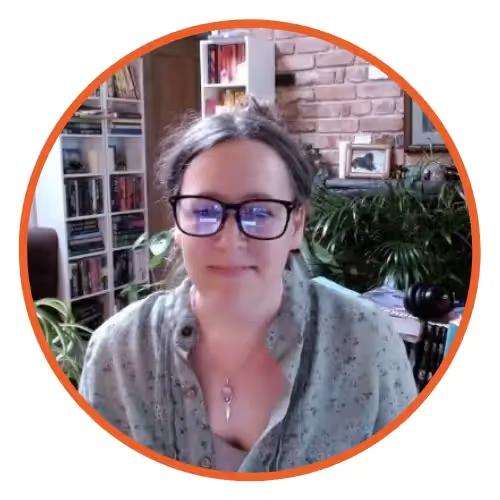
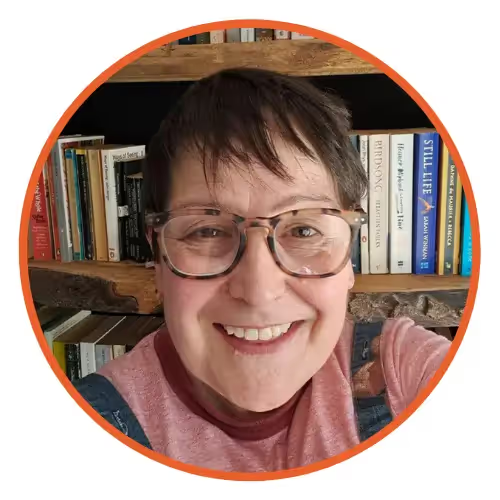


.avif)




